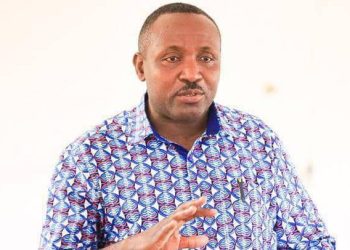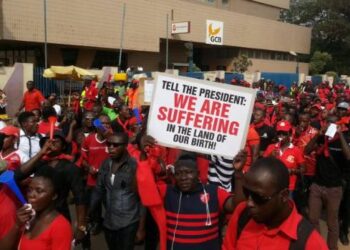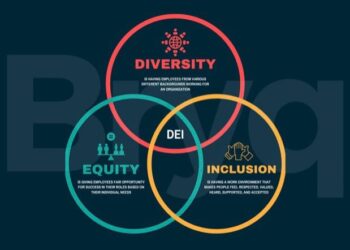As Ghana faces a hung Parliament in the next Government, the Ghana Centre for Democratic Development (CDD Ghana), has urged the governing New Patriotic Party (NPP) and the opposition National Democratic Congress (NDC), to collaborate for the good of the nation.
A hung parliament is a term used in legislatures under the Westminster system to describe a situation in which no particular political party or pre-existing coalition has an absolute majority of legislators (seats) in a parliament.
According to the Electoral Commission (EC), the ruling NPP won 137 legislative seats while the main opposition NDC had 136, with one independent and one seat left to be decided-Sene West Constituency in the Bono East Region.
Dr Kojo Pumpuni Asante, the Director of Advocacy and Policy Engagement, CDD Ghana, in an interview with the Ghana News Agency in Accra, said there were still parliamentary seats that were going to be contested.
“Some seats might even be contested even after they’ve been declared, but whatever the case it’s going to be a close parliament in terms of chamber, in terms of the right and left side of the chamber of Parliament,” he said.
He said all of the parliamentary processes and protocols and procedures for consensus building, for working together and all of those things had to be deployed otherwise the nation was going to get the government that could not just deliver.
Ghanaians, he said, needed a Parliament to be able to pursue policies and pass budgets.
“So, I’m sure once the dust settles in terms of who actually becomes the majority in Parliament, we will get a better sense of what implications they are for working together; but whichever way it is, whether it is the NPP that maintains the majority, which will be a slim majority or the NDC that does that it will be a slim majority,” Dr Asante said.
“The parties have to learn how to work together and to be able to deliver, otherwise if they don’t, the voters will have another say when the next election comes.”
He noted that in this case, voters would be looking at which party was determined to govern to make sure that they were doing things to improve the welfare of the people and not their own party interest or their benefits.
With regard to the December 7 polls, Dr Asante said: “The results of the election signals some deep reflections political parties must begin to have or all of us as a country must begin to have.
I mean there is some dissatisfaction with the quality of governance and we’ve seen that it is only through elections that we are able to express that.”
“In between elections we’ve tried but it is not easy. But through elections it is more definite that people want to signal that they are unhappy about certain processes.
We’ve seen that more in terms of the closeness of the election but also in terms of the Parliament in particular and it’s going to be a very interesting chapter for Ghana.”
He said there were no easy answers to them at this stage but definitely these were challenges that Ghanaians had to address quickly as they go into the next chapter for the country.
He said the nation witnessed a good voting process – 2016 was good, 2020 was even better in terms of the voting process; declaring that “we definitely have to look at the collation process again, 2016 it happened the same way, the delay process, the complication of collation and all of that and the controversy, the violence that is associated with it.”
“We need to take a very deep look (at the collation process) and we are hoping that the EC will open up to having a much more consultative process that we can all sort of find a solution that works for everybody, because if we don’t fix that then it just opens up a results to be having every time there is an election.”
He said the fact that on two occasions, the nation’s voting processes had gone very smoothly means that Ghanaians could ensure even the process to be smoother even at the collation time.
He said, to civil society or think tanks, the outcome of the December 7 polls was a completely different chapter.
“We have to go and reflect on what the implications are for what has happened and how we can help Parliament deliver. But also how we can make Government more responsible to the needs of the people.”









Discussion about this post